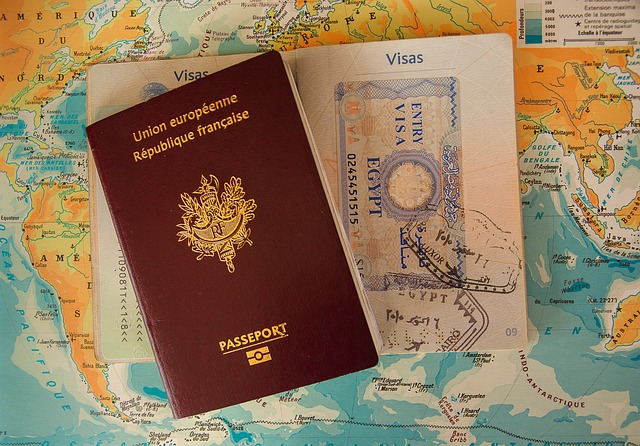Austria, a country renowned for its rich cultural heritage, stunning landscapes, and high quality of life, is also known for its strict citizenship laws. One of the most debated topics in Austrian immigration policy is dual citizenship. Unlike many other countries that allow their citizens to hold multiple nationalities, Austria has traditionally taken a more restrictive approach. However, recent developments and specific exceptions have made the topic of dual citizenship in Austria more nuanced. This article delves into the rules and regulations surrounding dual citizenship in Austria, exploring the legal framework, exceptions, and implications for individuals seeking to hold multiple nationalities.
Understanding Austrian Citizenship Laws
Austrian citizenship is primarily based on the principle of jus sanguinis (right of blood), meaning that citizenship is inherited through parents rather than birthplace. This principle has shaped Austria’s approach to dual citizenship, as the country aims to maintain a strong connection between its citizens and the state.
General Prohibition of Dual Citizenship
Austria generally does not permit dual citizenship. According to the Austrian Citizenship Act (Staatsbürgerschaftsgesetz), individuals who acquire Austrian citizenship are required to renounce their previous nationality, and Austrians who voluntarily acquire another citizenship may lose their Austrian citizenship. This policy reflects Austria’s commitment to ensuring that its citizens have an undivided allegiance to the country.
However, there are exceptions to this rule, which have created opportunities for certain individuals to hold dual citizenship in Austria.
Exceptions to the Dual Citizenship Ban
While Austria’s stance on dual citizenship is strict, there are specific circumstances under which dual citizenship is permitted. These exceptions are designed to address unique situations and ensure fairness in the application of citizenship laws.
1. Dual Citizenship by Birth
One of the most common exceptions to Austria’s dual citizenship ban is for individuals who acquire multiple nationalities at birth. For example, if a child is born to Austrian parents in a country that grants citizenship based on jus soli (right of soil), such as the United States or Canada, the child automatically holds both Austrian and foreign citizenship. In such cases, Austria recognizes the dual citizenship and allows the individual to retain both nationalities indefinitely.
2. Dual Citizenship for Descendants of Victims of Nazi Persecution
Austria has made special provisions for descendants of victims of Nazi persecution. Individuals who lost their Austrian citizenship due to persecution during the Nazi era, as well as their direct descendants, are eligible to reclaim Austrian citizenship without having to renounce their current nationality. This exception is part of Austria’s efforts to address historical injustices and provide reparations to affected families.
3. Dual Citizenship for EU and EEA Nationals
Austria permits dual citizenship for citizens of other European Union (EU) and European Economic Area (EEA) member states. This exception is rooted in the principles of EU law, which promote freedom of movement and non-discrimination among member states. As a result, EU and EEA nationals who acquire Austrian citizenship are not required to renounce their original nationality.
4. Dual Citizenship in Exceptional Circumstances
In rare cases, Austrian authorities may grant dual citizenship to individuals who can demonstrate exceptional circumstances. These cases are evaluated on an individual basis and typically involve compelling personal or professional reasons. For example, a renowned scientist or artist who contributes significantly to Austria’s cultural or scientific landscape may be granted dual citizenship as a special honor.
Acquiring Austrian Citizenship: Key Considerations
For individuals seeking to acquire Austrian citizenship, understanding the implications of dual citizenship is crucial. The process of becoming an Austrian citizen is rigorous and requires meeting specific criteria, including residency requirements, language proficiency, and financial stability.
Renunciation of Previous Citizenship
As a general rule, applicants for Austrian citizenship must renounce their previous nationality unless they fall under one of the exceptions mentioned above. This requirement underscores Austria’s emphasis on exclusive allegiance to the state.
Naturalization Process
The naturalization process in Austria typically requires at least 10 years of continuous legal residence, although shorter periods may apply in certain cases, such as for spouses of Austrian citizens. Applicants must also demonstrate proficiency in the German language, pass a citizenship test, and prove their financial self-sufficiency.
Implications of Dual Citizenship in Austria
For those who qualify for dual citizenship in Austria, holding multiple nationalities can offer significant advantages. These include the ability to live, work, and study in multiple countries, access to consular protection from both states, and the opportunity to participate in the political processes of both nations.
However, dual citizenship also comes with responsibilities. Dual citizens must comply with the laws and obligations of both countries, including taxation, military service, and legal jurisdiction. In some cases, conflicting laws between the two countries can create complexities that require careful navigation.
Recent Developments and Future Outlook
In recent years, there has been growing debate in Austria about the possibility of relaxing dual citizenship restrictions. Advocates argue that allowing dual citizenship would attract skilled immigrants, strengthen Austria’s global connections, and align the country with the practices of other EU member states. However, opponents contend that dual citizenship could dilute national identity and loyalty.
While no major changes to Austria’s dual citizenship laws have been implemented as of 2023, the ongoing discussion suggests that the issue may remain a topic of political and social interest in the years to come.

اترك تعليقاً